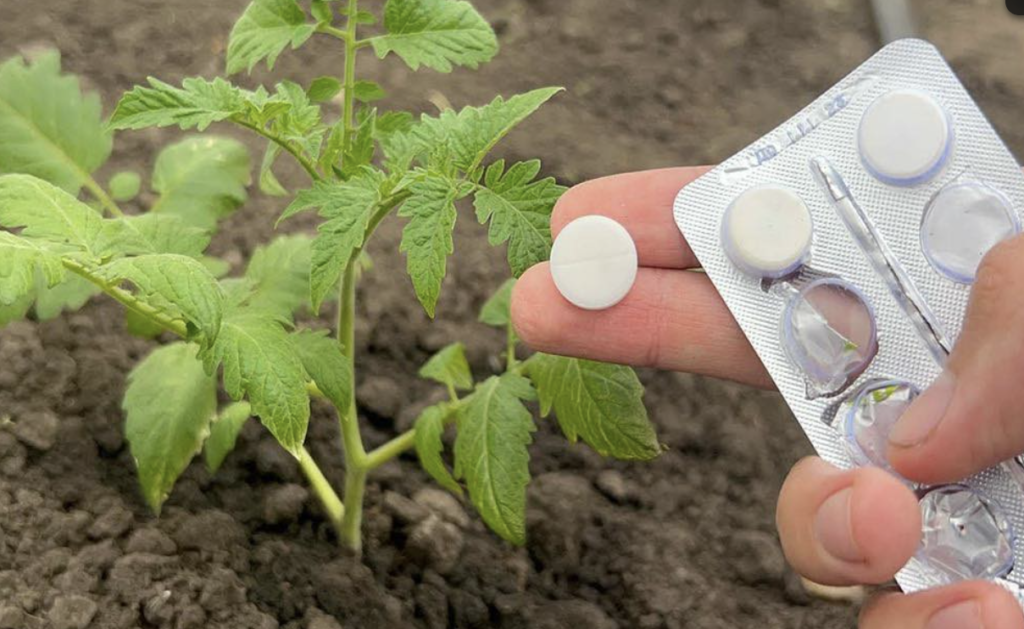Aspirin, known scientifically as acetylsalicylic acid, has been found to offer remarkable benefits for vegetable plants beyond just keeping cut flowers fresh. Recent research conducted by the University of Rhode Island has highlighted its potential to enhance growth, strength, and resilience in vegetable crops. Here’s how you can utilize aspirin in your vegetable gardening practices:
Rooting Aid:
- Soak vegetable cuttings in a solution of distilled water and dissolved aspirin for several hours before planting. This helps disinfect the cuttings and stimulates robust root development.
Growth Stimulant:
- Dilute aspirin in water and spray the solution onto vegetable plants every few weeks. This promotes vigorous growth and strengthens plant immunity against diseases.
Seed Treatment:
- Prior to sowing, soak vegetable seeds in a mixture of water and aspirin to improve germination rates and seedling vigor.
Soil Amendment:
- Place aspirin tablets directly into the soil around vegetable plants, ensuring they receive regular watering to activate the aspirin’s beneficial properties.
Benefits:
- Enhanced Growth: Aspirin-treated vegetables exhibit notable improvements in growth and strength.
- Increased Resistance: Plants treated with aspirin show increased resistance to common pests and diseases, particularly solanaceous vegetables like tomatoes, peppers, and eggplants.
- Cost-Effective: Aspirin treatment is a simple and cost-effective strategy for supporting healthier, more productive vegetable plants.
By incorporating aspirin treatment into your vegetable gardening routine, you can enjoy the transformative impact it has on the health and productivity of your plants. Give it a try and witness the benefits firsthand in your vegetable garden.
